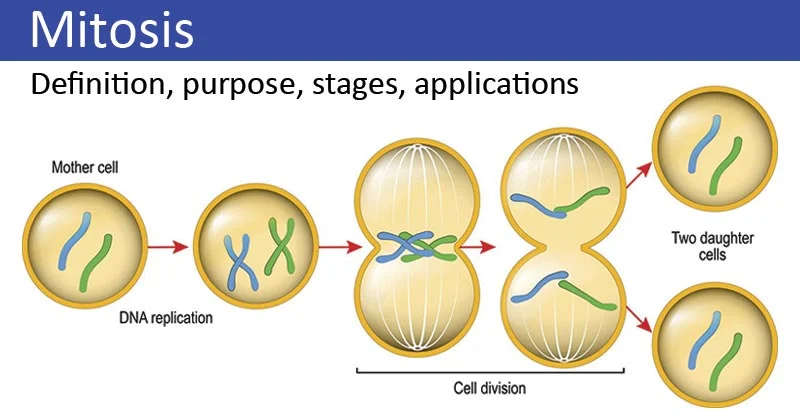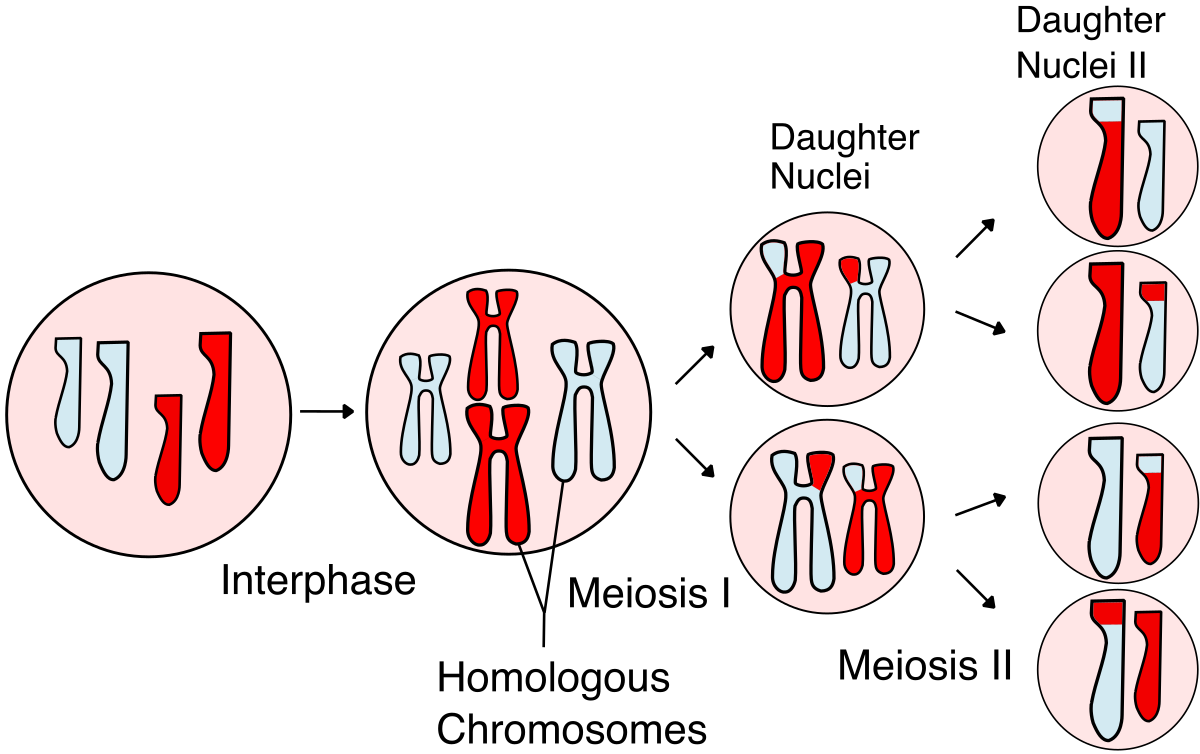Mitosis and Meiosis
1/14
There's no tags or description
Looks like no tags are added yet.
Name | Mastery | Learn | Test | Matching | Spaced |
|---|
No study sessions yet.
15 Terms
Why do cells need to reproduce?
Cells need to reproduce so organisms can increase its size and replace damaged or dying cells.
Somatic cells
Refers to all cells in the body except for reproductive cells (egg and ova).
Mitosis
When somatic cells reproduce.
Meiosis
Cell division of reproductive cells → involves production of gametes.
Mitosis cell division
Where one parent cell divides to form 2 genetically identical daughter cells.
How does mitosis cell division process?
Mitosis occurs in both plants and animals, when cells are ready to replicate, a copy of the chromosomes is made with one set going into each daughter cell (46 chromosomes).
Parent cells
Cells from which other cells develop from during cell division.
Daughter cells
A cell resulting from parent cell division.
Simplified representation of mitosis

Meiosis
Cell division creating four genetically diverse daughter cells with half of genetic material from mother and half from father.
Haploid
(Of a cell or nucleus) having a single set of unpaired chromosomes (n)
Diploid
(Of a cell or nucleus) having a set of paired chromosomes (2n)
How many chromosomes do gametes have?
Gametes have 23 chromosomes (n) and are haploid, however, when they combine during fertilisation, they form a diploid zygote with 46 chromosomes (2n).
Homologous chromosomes
Chromosomes carrying same structure and genes but different versions (alleles) of the genes. (E.g → one chromosome in each pair from the mother and father).
Simplified representation of meiosis
